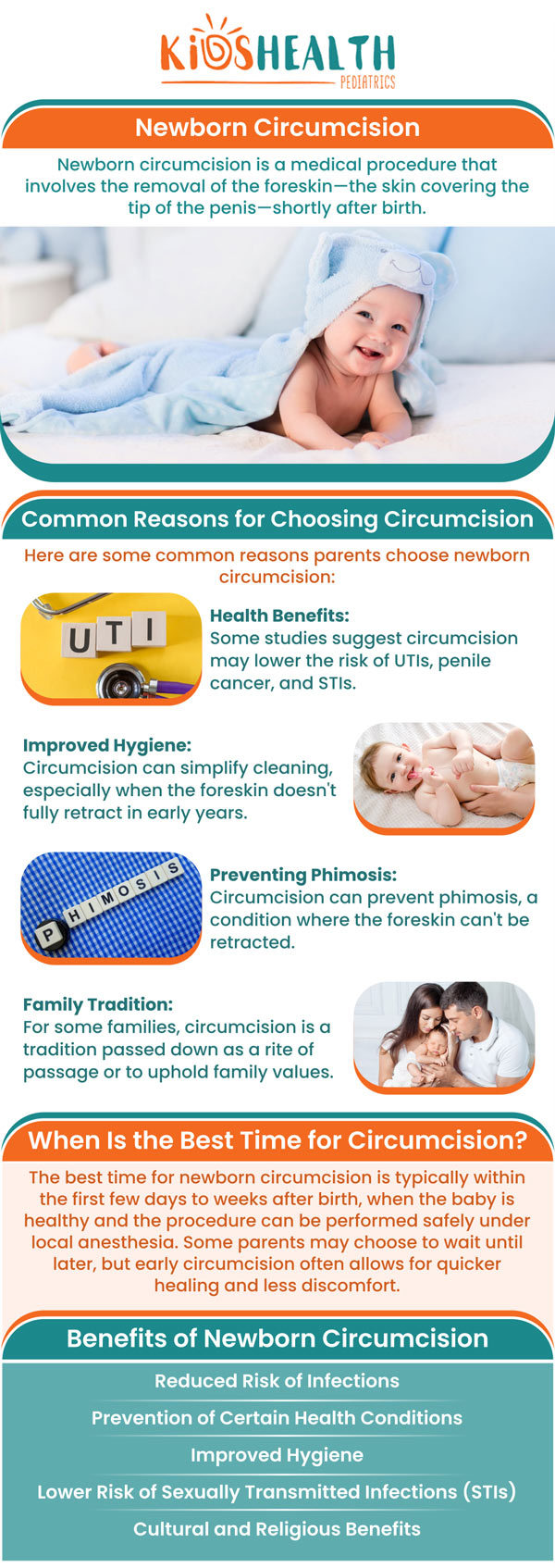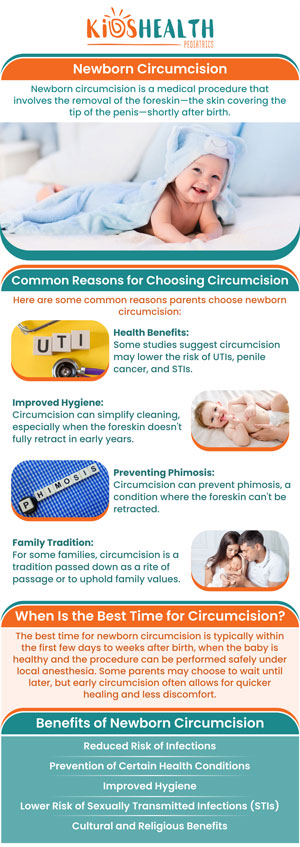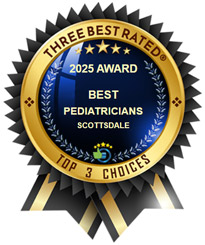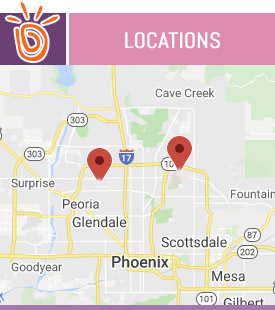Circumcision: Treatment, Risks, Benefits, Recovery
Circumcision is a surgical procedure that involves the removal of the foreskin from the penis, a practice performed for thousands of years for various religious, cultural, and medical reasons. Despite its long history, circumcision remains a controversial topic, with ongoing debates about its benefits and drawbacks. This procedure is available for male infants younger than 1 month who are established patients at our clinic; please ensure your child is registered with us to discuss and schedule circumcision. Reach out to talk to our friendly and experienced pediatrician, Dr. Maria Nabong today or book an appointment online. We Have 2 Pediatric Clinics in Scottsdale, AZ & Glendale, AZ.




Table of Contents:
What are the benefits of being circumcised?
What’s the best age to get circumcised?
What are the pros and cons of circumcision?
How long does circumcision take?
One of the most significant benefits of circumcision is a lower risk of sexually transmitted infections (STIs). Studies have shown that circumcision reduces the risk of STIs such as HIV, HPV, and herpes. Additionally, circumcised men are less likely to transmit STIs to their partners, which can protect both men and women from the negative health consequences of STIs. Therefore, circumcision can be an effective way to reduce the spread of STIs and promote sexual health.
Circumcision can also improve genital hygiene. The foreskin can trap bacteria and other harmful substances, making uncircumcised men more prone to infections and other genital health issues. By eliminating the need for cleaning under the foreskin, circumcision can improve overall genital health and reduce the risk of urinary tract infections. Furthermore, circumcision can also reduce the risk of penile cancer, which is more common in uncircumcised men. Therefore, circumcision can be an effective way to promote genital health and reduce the risk of related health issues.
In addition to physical benefits, circumcision can also have psychological benefits. Additionally, circumcision can reduce anxiety and depression related to genital issues, particularly in men who have experienced health problems related to their foreskin. Therefore, circumcision can be an effective way to promote mental health and well-being.
These results suggest that circumcision is better for boys younger than 1 month of age, even with few complications from anesthesia. Longer hospital stays are associated with increased risk of infection and increased costs.
Circumcision has been shown to have several potential benefits, including a reduced risk of urinary tract infections, a lower risk of sexually transmitted infections, including HIV, and a decreased risk of penile cancer. Studies have found that circumcised men have a lower incidence of urinary tract infections, which can cause serious health problems if left untreated. Additionally, circumcision has been shown to reduce the risk of sexually transmitted infections, including HIV, by up to 60%. This is because the foreskin can harbor bacteria and viruses that can increase the risk of infection. Finally, circumcision has been found to reduce the risk of penile cancer, a rare but serious form of cancer that affects the penis.
Despite its potential benefits, circumcision is not without risks. The procedure can be painful and may result in complications such as bleeding and infection. Additionally, some men report a loss of sensitivity and sexual pleasure following circumcision. This is because the foreskin contains nerve endings that are important for sexual sensation. While these risks are relatively rare, they are important to consider when weighing the pros and cons of circumcision.
The controversy surrounding circumcision centers on several issues, including religious and cultural justifications, criticism of medical justifications, and advocacy for alternative methods of promoting genital health and hygiene. Many religious and cultural traditions require circumcision as a rite of passage or as a sign of faith. However, some argue that these traditions are outdated and unnecessary. Others criticize the medical justifications for circumcision, arguing that the evidence supporting its benefits is not strong enough to justify the procedure. Finally, some advocate for alternative methods of promoting genital health and hygiene, such as education and access to clean water and sanitation facilities.
During circumcision, the foreskin (excess skin) around the end of the penis is removed. Circumcision is usually performed in a doctor’s office. Your visit should take approximately one and a half hours in total.
If you are interested in having your child circumcised, contact KidsHealth Pediatrics to schedule a consult with one of our top-rated doctors, and get more information on if this would be a beneficial surgery for your child, as well as ask any questions you may have. If you have any questions or would like more information about our services, contact us here. Or, if you’re ready to see one of our specialists book an appointment online. We Have 2 Pediatric Clinics in Scottsdale, AZ & Glendale, AZ. We serve patients from Glendale AZ, Peoria AZ, Sun City AZ, Scottsdale AZ, North Scottsdale AZ, Grayhawk AZ, and surrounding areas of Phoenix AZ.

Additional Services You May Need

Additional Services You May Need









